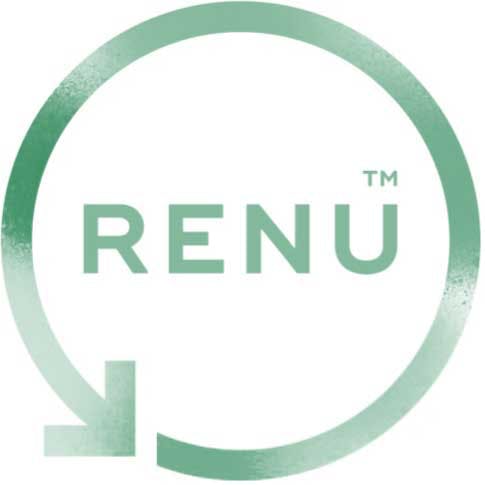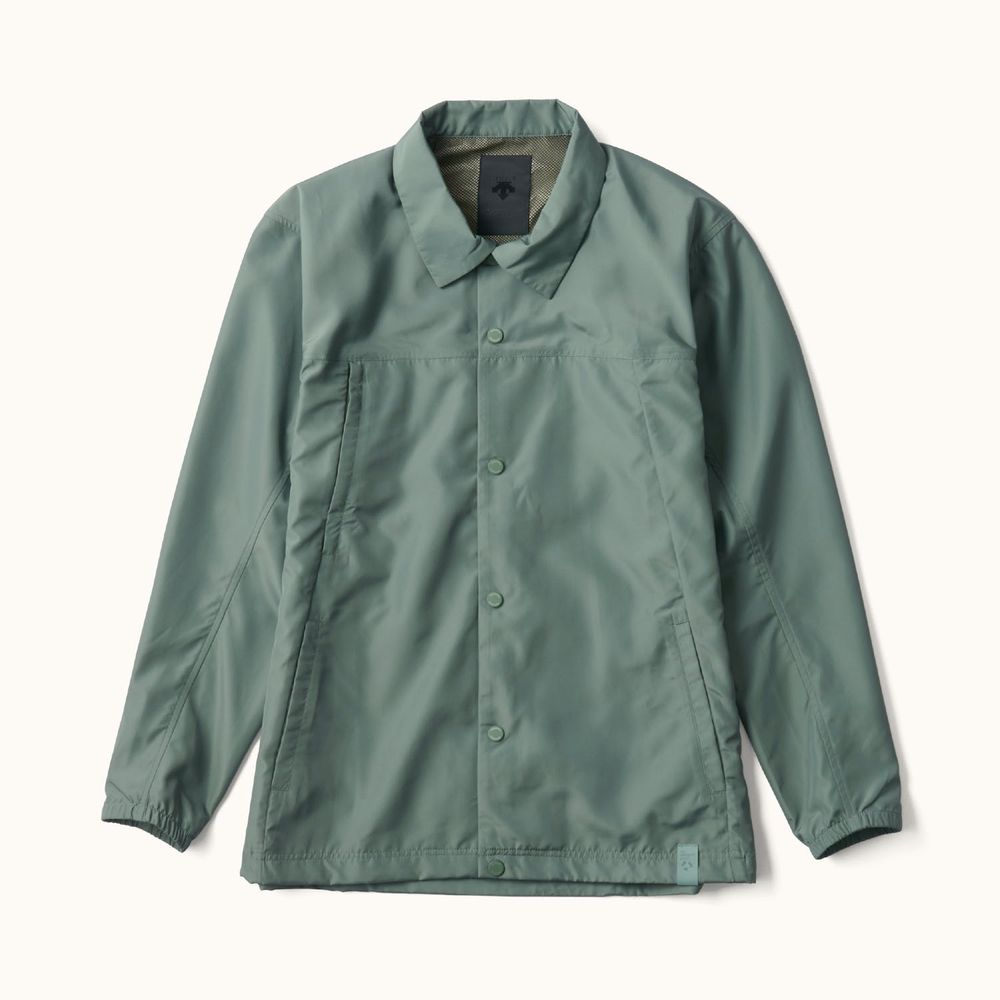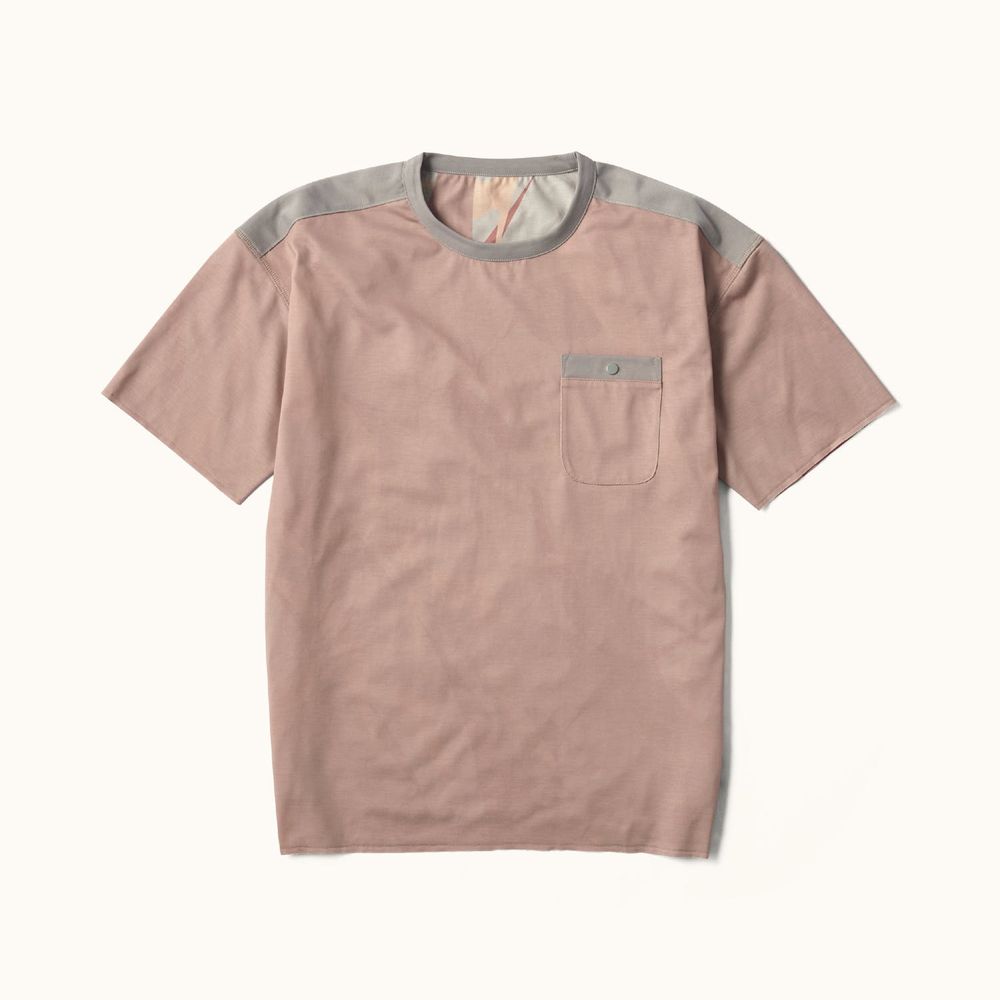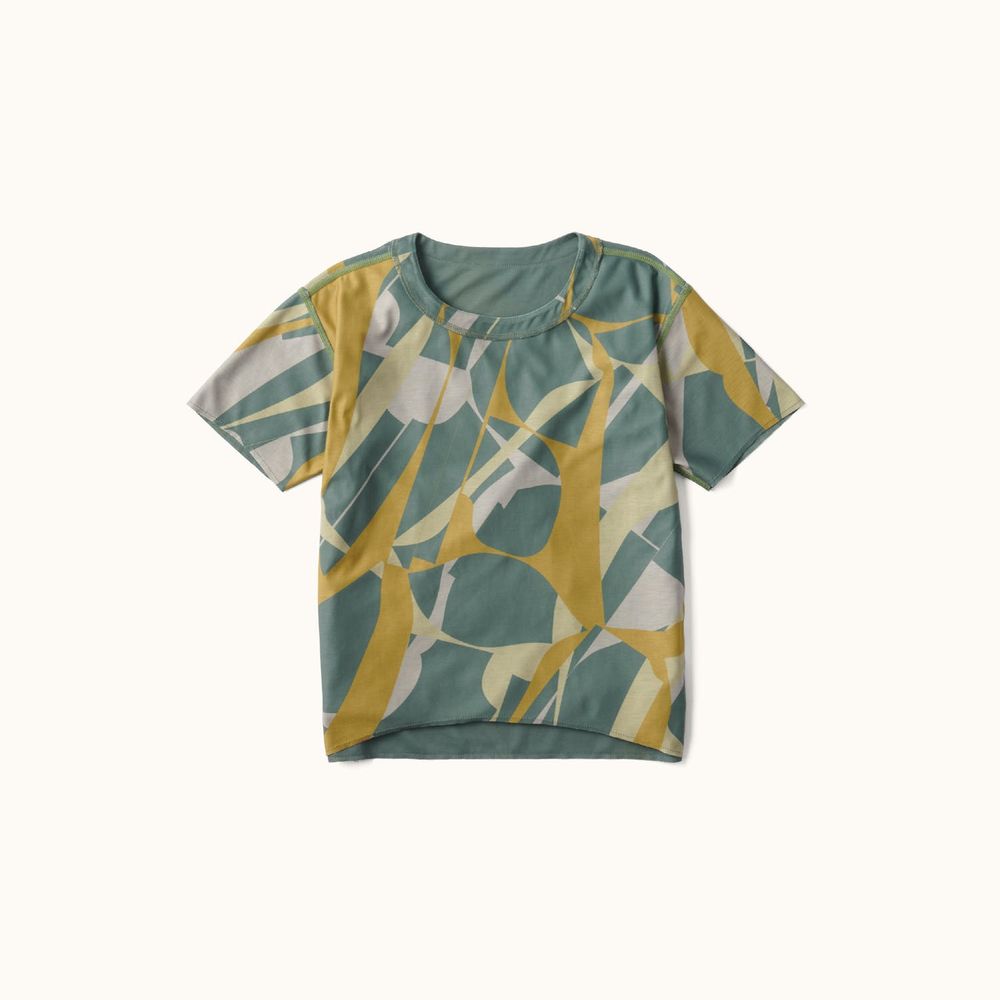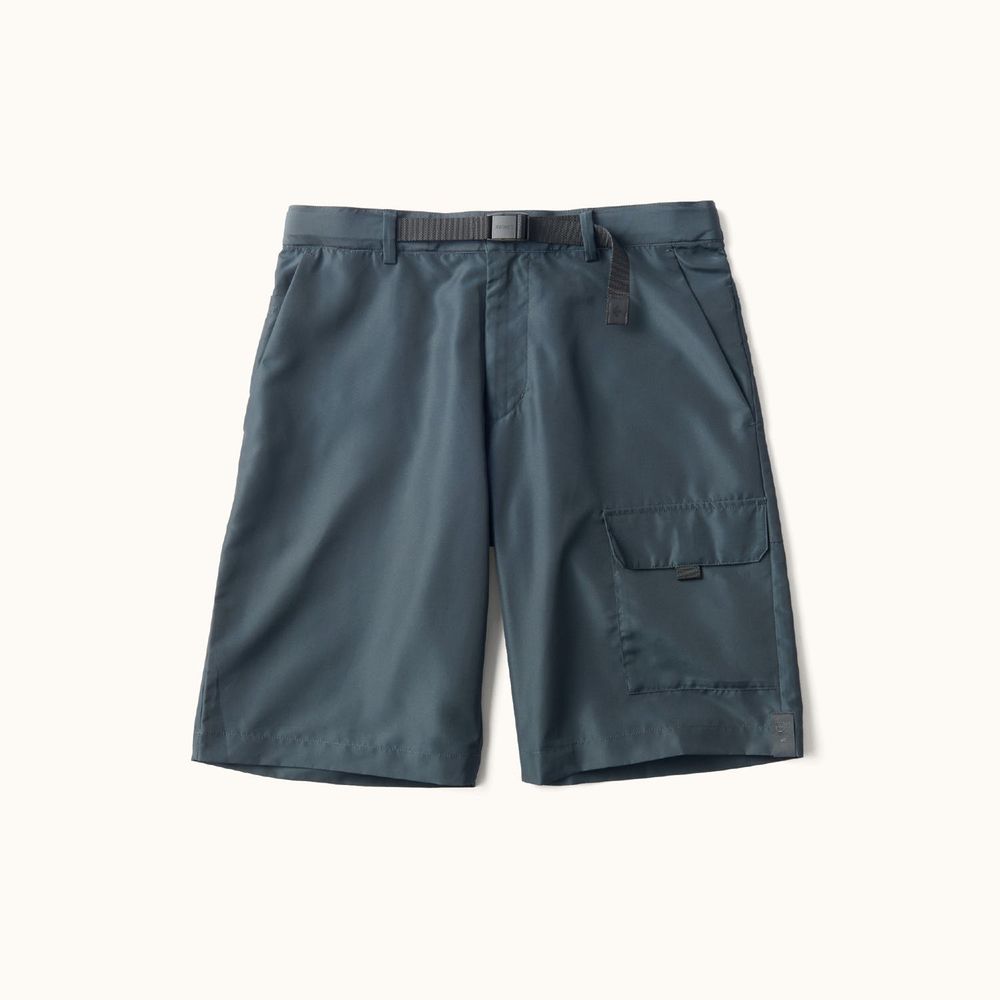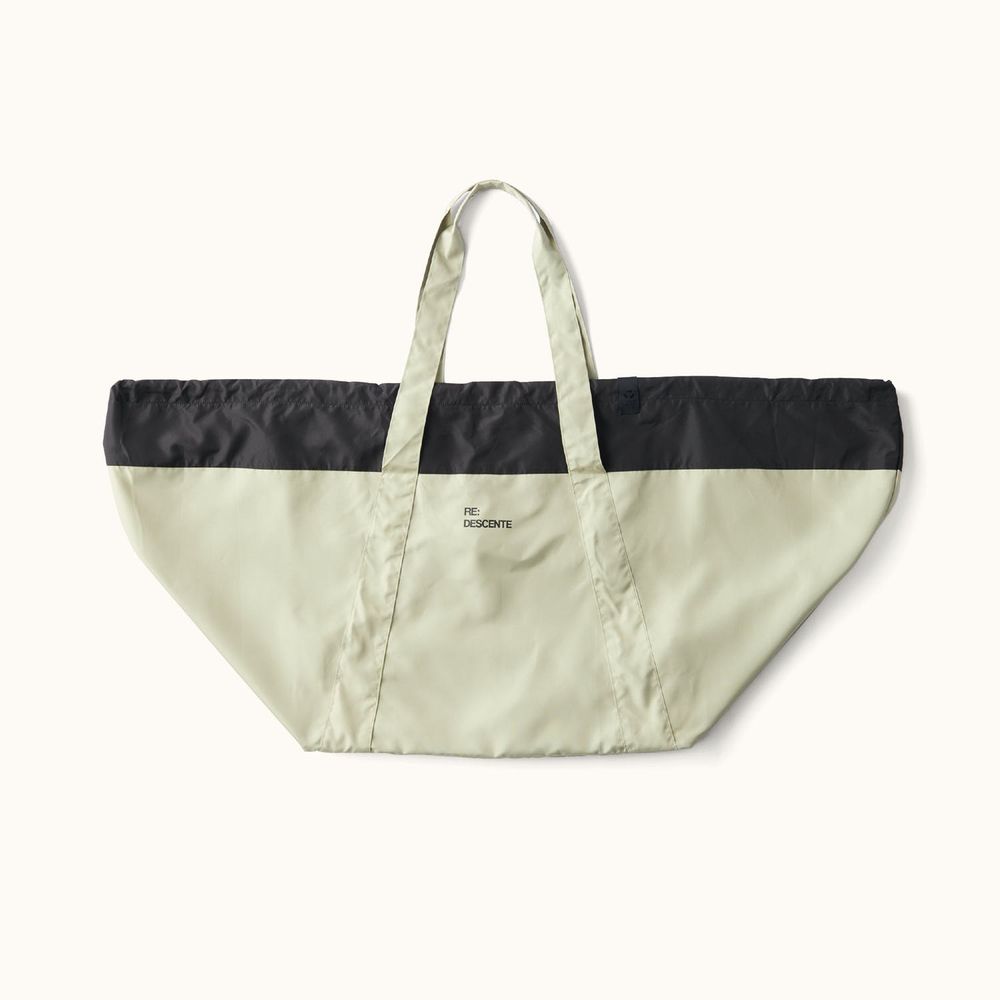RE: DESCENTE BIRTH
The aim of the RE: DESCENTE BIRTH series is to bring about a recycling-oriented economy by re-creating apparel products from apparel products, utilising RENU materials – fabric cuttings and remnants/scraps generated in the manufacturing process – and used clothing as the basic raw materials. So a vital part of our "from clothes to clothes" activity is working to collect used garments.
Product collection boxes are installed at each Descente brand store. In order to recycle collected products as raw materials and convert them smoothly to renewable energy*, we can only accept Descente brand products.
*It is necessary to know the composition of the garment fabric (the percentage of the fibers that make up clothes, such as polyester, nylon, and cotton).
RENU contributes to bringing about a circular economy by effectively converting waste fabric from garment manufacturers and recycled clothing into remade polyester, which can then be made into new garments. With this process, there are fewer non-renewable resources in the supply chain and a significant reduction in the consumption of fossil fuels, such as oil and water, energy and CO₂ emissions. At a partner factory in China, around 30,000 tons of discarded garments are collected and recycled to create the polyester yarn from which the new clothing will be made.
In Japan, we participate in the JEPLAN (Japan Environment Planning) "BRING ™" project to collect and recycle used clothing. We collect used Descente products at our own stores and convert them into recycled polyester raw materials using our unique chemical recycling technology. Materials other than polyester are also recycled appropriately.
RE: DESCENTE BIRTH AIRDYE COACH JACKET
MATERIAL: RENU AIRDYE WOVEN PRINT
FUNCTION: Eco Friendly
SIZE:
US XS S M L
F.I.D. 44 46 48 50
JPN S M L O
COLOR:
(ASBL) ASH BLUE
(KHK) KHAKI
(CHC) CHACOAL
(SND) SAND
RE: DESCENTE*1 "RE: DESCENTE BIRTH" series*2 AIRDYE coach jacket is a versatile, long season item, light and easy to put on. Equipped with three very accessible engineered pockets and sporty detailing. Special attention has been given to eco-friendly production, using RENU*3 recycled polyester fabric made from garment factory scraps and remnants and used clothing. Airdye printing, replacing traditional dyeing processes, saves up to 95% water, 86% energy and 84% greenhouse gas emissions. There is a water saving effect of approximately 170 liters per item. A coach jacket that is both user and environmentally friendly.
*1 RE:DESCENTE PROJECT is a corporate social responsibility program in sustainability with a focus on environmental conservation. Our aim is to work towards creating, for the children who will shape the future, a society with less impact on the global environment.
*2 RE:DESCENTE BIRTH series is aimed at bringing about an environmentally friendly economy by offering garments made only with recycled materials. It is based on the use of unique RENU technology. We are now working actively to collect waste fabric and used garments for conversion into new material and to create a “from garment to garment” production ethic.
*3 RENU contributes to bringing about a circular economy by effectively converting waste fabric from garment manufacturers and recycled clothing into remade polyester, which can then be made into new garments. With this process, there are fewer non-renewable resources in the supply chain and a significant reduction in the consumption of fossil fuels, such as oil. At a partner factory in China, around 30,000 tons of old, discarded garments are collected and recycled to create the polyester chips from which the new clothing will be made.
